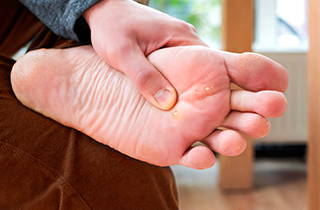
Why is the recovery phase essential and how can you help?
Experiencing diabetes is difficult; getting an official diabetes diagnosis is daunting, and managing diabetes is even more challenging. No matter how minor or severe a sickness is, there is still a chance for it to relapse or become worse. In diabetic terms, blood glucose levels can fluctuate and cause complications if not given proper care. Thus, a good aftercare or recovery plan is a vital preventive measure to help you manage the illness.
Firstly, understanding what they are currently facing and what they need.
Every individual has different needs and challenges at hand. Start your journey by checking up on the diabetic patient's current condition. Have a chat to learn more about the hurdles they face during their recovery and how you can help. For example, the person may have been experiencing soreness in the feet and you can help ease it by buying a soothing cream for them. It is also encouraged to have them show you the cuts they have, the food they eat or even the things they do. This way, you can better understand the situation.
Next, kick-start your research.
The next thing you can do is do your homework. By doing so, the research you do helps you to make better decisions to take better courses of action. You can look up resources online, read articles and books, or even visit a hospital to get a professional's help. As you research, you can dive into topics related to the patient’s state, such as the causes, signs and symptoms of their ailment and what can be done to improve the condition. Remember, do not self-diagnose without proper consultations. A false diagnosis can lead you to create recovery plans that can cause harm to the person you are nursing. Should you encounter any roadblocks along the way, always see medically trained personnel for guidance.
After that, start by showing your support.
In short, be there for them because some experiences, like attending a medical appointment, can be daunting for diabetic patients. To any individual, hearing that you or someone you love has a disease can cause panic and stress. Even without giving financial backing, you can support them during rough times just by being by their side, much like a pair of good-filling shoes. Your presence is a source of comfort and empowerment. It shows the patient how much you care for them, giving them the courage to push through any hurdles while providing them with another helpline.
And now, it is time to put your plans into action!
Have fun activities together! A healthy lifestyle is good for both the sole and the soul, helping one to heal. For instance, you can have yoga sessions three times a week to strengthen your muscles and joints. Try keeping an eye out for the things that both of you have in common and what interests both of you to build this shared passion. If you are both into cooking, you can explore new recipes that can give you stronger heels and a happier stomach. The key thing is to do something that both you, as the caretaker and the patient enjoy. Not only does it help build a more robust body, but it also brings people together.
Someone once said that diabetes is not a disease but a lifestyle and an art. It takes a lot of time, patience and trials. As you learn to help your diabetic loved ones, you can create more colourful days ahead with them. Even if you make a mistake, you can still grow from it and be better caretakers for the ones in need.
References:
- https://www.healthline.com/health/support-someone-living-with-type-2-diabetes
- https://www.niddk.nih.gov/health-information/diabetes/overview/managing-diabetes/4-steps
- https://asprtracie.hhs.gov/technical-resources/18/recovery-planning/110
- https://www.nursetogether.com/diabetes-nursing-diagnosis-care-plan/#:~:text=Nursing%20Care%20Plan%20for%20Diabetes&text=Monitoring%20the%20blood%20glucose%20level,appropriate%20or%20requires%20dosage%20adjustments.
- https://www.wgu.edu/blog/nursing-care-plans-introduction2111.html





